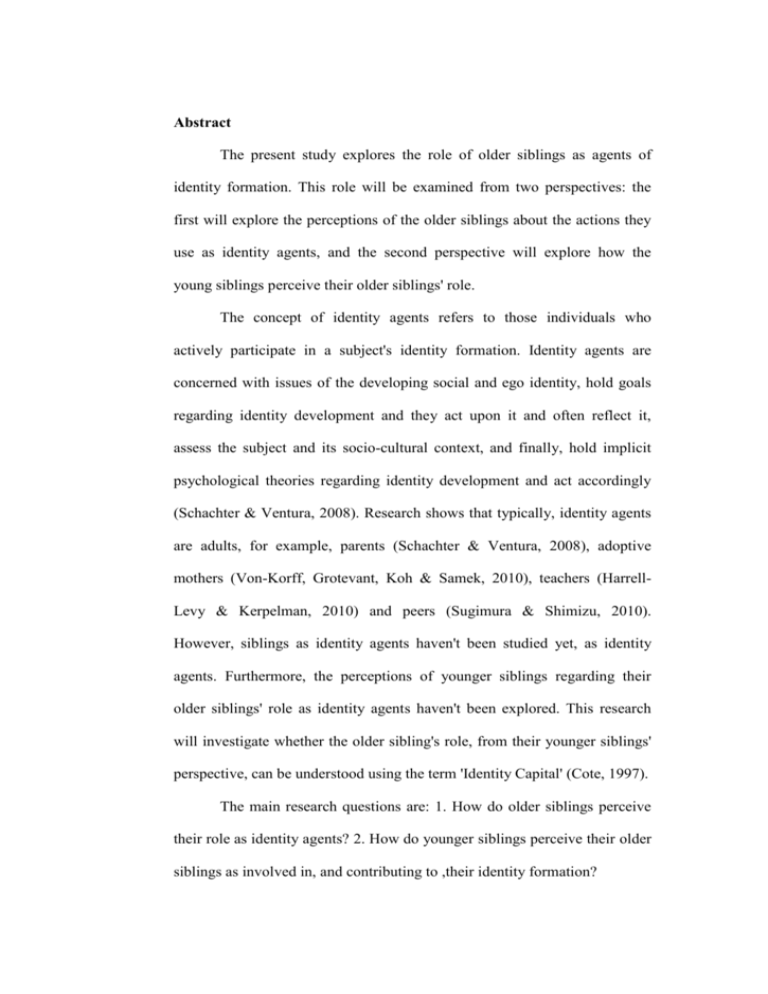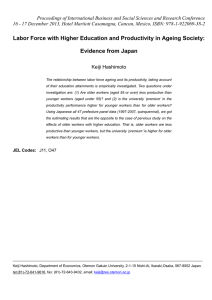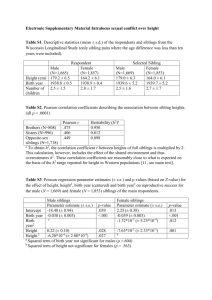Abstract
advertisement

Abstract The present study explores the role of older siblings as agents of identity formation. This role will be examined from two perspectives: the first will explore the perceptions of the older siblings about the actions they use as identity agents, and the second perspective will explore how the young siblings perceive their older siblings' role. The concept of identity agents refers to those individuals who actively participate in a subject's identity formation. Identity agents are concerned with issues of the developing social and ego identity, hold goals regarding identity development and they act upon it and often reflect it, assess the subject and its socio-cultural context, and finally, hold implicit psychological theories regarding identity development and act accordingly (Schachter & Ventura, 2008). Research shows that typically, identity agents are adults, for example, parents (Schachter & Ventura, 2008), adoptive mothers (Von-Korff, Grotevant, Koh & Samek, 2010), teachers (HarrellLevy & Kerpelman, 2010) and peers (Sugimura & Shimizu, 2010). However, siblings as identity agents haven't been studied yet, as identity agents. Furthermore, the perceptions of younger siblings regarding their older siblings' role as identity agents haven't been explored. This research will investigate whether the older sibling's role, from their younger siblings' perspective, can be understood using the term 'Identity Capital' (Cote, 1997). The main research questions are: 1. How do older siblings perceive their role as identity agents? 2. How do younger siblings perceive their older siblings as involved in, and contributing to ,their identity formation? The methodology used in this research is qualitative-naturalistic and relies on a narrative approach. Thematic life story interviews were conducted with 16 siblings (8 older siblings and 8 younger siblings) aged 22-30. All interviews were recorded, transcribed, and analyzed using 'guided multiple reading' methodology (Alexander, 1988). The findings are divided into three main sections: the first section deals with the first question whether older siblings perceive their role as identity agents. We found that older sibling indeed perceive themselves as identity agents according to Schachter and Ventura's (2008) categories of perspectives and actions of identity agents. Five categories were identified as matching the parent identity agent: identity concern, goals, praxis, assessment, implicit theory and reflexivity. An additional category was added, describing the sibling identity agent: mediation. The second section deals with the following question whether younger siblings perceive their older siblings as involved in, and contributing to, their identity formation. Findings show that younger siblings perceive their older siblings as engaging in their process of identity formation by enhancing their identity capital resources: tangible and intangible identity capital. The younger sibling perceives his older sibling as enhancing his identity capital using four practices: the older sibling engages in identity exploration, identification, giving confirmation, and teaching him skills, so as to develop a thriving identity. The third section of the findings deals with the dynamism of the role of the identity agent sibling. The research suggests that the role changes throughout one's life. The change may be directed towards equity, friendship and mutuality or towards the ending of the role as an identity agent, because of distance, aversion or competition. This research contributes to the theoretical understanding of siblings' role in identity formation. Siblings can fulfill a meaningful and effective role for their younger siblings. Their position within the framework of the family enables them to act and thereby direct their siblings during critical points in the younger siblings' lives. The discussion suggests recommendation for further research. First, it may be that the relationship between other identity agents (parents, teachers and peers) and their subjects (children, students) can also change over time; however, this issue hasn't been explored. Secondly, further research could also try and explore the role of identity agents in the perspective of other subjects (i.e, children, and students): the subjects' perception of the relationship, the agents' characters, and the changes that occur over time.






